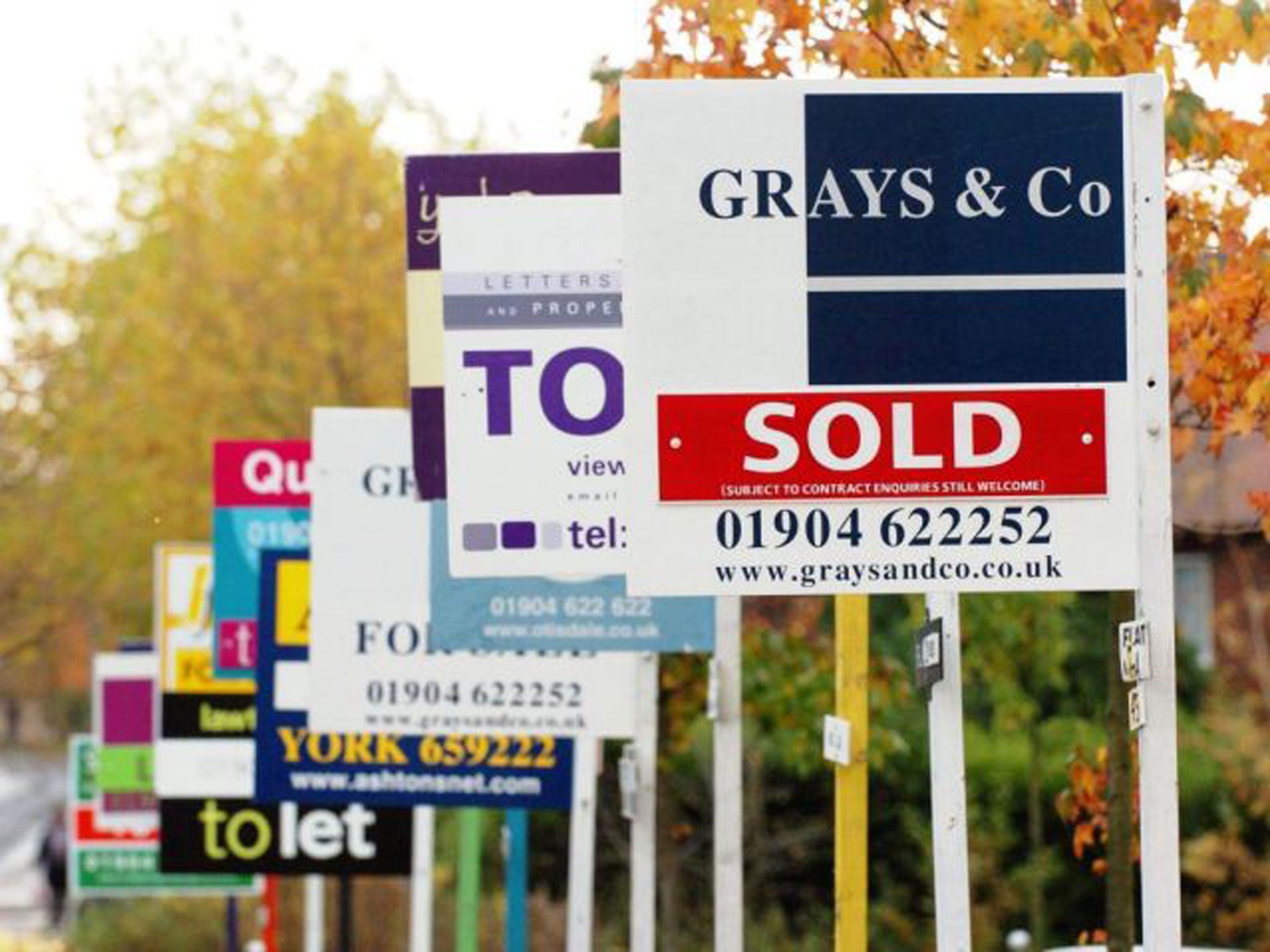House prices rising at fastest rate in four years
Prices now stand at £177,846 across the UK after climbing 0.6% in February

House prices lifted by 9.4 per cent year on year in February as consumer confidence continues to grow, Nationwide has reported.
The latest annual increase means prices are continuing to rise at their strongest pace in almost four years, with an 8.8 per cent annual increase recorded in January.
Prices now stand at £177,846 across the UK after climbing by 0.6 per cent month on month, with February marking the 14th month of increases in a row.
Despite the blossoming housing market, property values are still sitting at around 3 per cent below their peak recorded in 2007, the building society said.
However, a second set of figures, from the Land Registry, suggests a slower rate of increase with January house prices up one per cent since December 2013, putting the average house price in England and Wales at £168,356. It also said that the annual price increase to January was 4.2 per cent.
These statistics show that London experienced the greatest increase in average property values over the last 12 months, up by 10.9 per cent, while the North East saw the biggest monthly rise with an increase of 2.6 per cent. Yorkshire & The Humber had the most significant monthly price fall with a drop of 1.4 per cent.
Nicholas Ayre, managing director of homebuying agency Home Fusion, said: "Disparity across the UK gets even bigger with London prices driven by international demand. It raises the bigger question of whether domestic demand will eventually taper off and be swallowed up by international buyers, who are not constrained by needing a mortgage, which most domestic buyers are. At what stage do we reach the point when affordability stops domestic buyers getting the home they want in London?"
Rory Penn, partner of London agency VanHan, added: "Rising prices are bad news for first-time buyers who are paying significantly more than they were a year ago. If this trend continues, lack of affordability could start to become an issue. For now however, it is the best opportunity for first-time buyers to get on the housing ladder for some years with interest rates at historic lows and mortgage availability improving, at least until the expected slowdown in April when the Mortgage Market Review is introduced."
Robert Gardner, Nationwide's chief economist, said housing market demand is being fuelled by the low interest rate environment, improved access to mortgages as well as rising consumer confidence amid an improving employment situation.
Meanwhile, a lack of supply of homes to choose from as demand grows is continuing to put an upward pressure on house prices.
Mr Gardner said: "Price growth is being supported by the fact that the supply of housing remains constrained, with housing completions still well below their pre-crisis levels, which was already insufficient to keep up with the pace of household formation.
"For example, in England, around 109,500 new homes were built in 2013, this is 38 per cent below the level recorded in 2007 and around half the projected number of households that are expected to form each year in the years ahead."
The Government's Help to Buy scheme was launched in England last spring and a second version of the scheme was fired into action across the whole of the UK in October.
Mortgage lenders representing more than two-thirds of the market are taking part in the second version of Help to Buy, which offers home loans backed by the state to first-time buyers and home movers looking to buy a new-build or an existing home.
Lenders have reported seeing a surge in first-time buyer numbers in recent months. But concerns have also been growing that rising house prices are putting more pressure on people to take their first step on the property ladder amid fears they may lose out, raising the possibility that they could end up over-stretching themselves.
Campbell Robb, Shelter’s chief executive said: "As house prices continue to climb, thousands of young people and families watch their dream of a stable home edge even further out of reach, however hard they work or save.
"Our housing shortage already means that too many people are competing for too few homes. Despite the government fanfare, schemes like Help to Buy only make things worse by increasing the number of potential buyers, pushing up prices and leaving more priced out of the bidding. We need to see solutions that will build the affordable homes we desperately need, not schemes that further inflate prices and make a stable home even more unaffordable."
Mr Gardner said that cash buyers have become an increasingly important factor in the housing market in recent years. The share of house sales involving cash increased from around one fifth (20 per cent) in 2005/6 to more than one third (35 per cent) after the financial crisis.
But the increased share of the market that cash buyers have gained appears to have more to do with a decline in people buying a home with a mortgage amid toughened credit conditions rather than the number of cash buyers rising, he said.
The share of cash buyers in London is broadly the same as the rest of the UK, despite the attraction that the capital holds for wealthy overseas investors.
Gardner suggested that relatively high house prices in London are helping to act as a cap on the number of people able to buy homes there using cash.
Subscribe to Independent Premium to bookmark this article
Want to bookmark your favourite articles and stories to read or reference later? Start your Independent Premium subscription today.

Join our commenting forum
Join thought-provoking conversations, follow other Independent readers and see their replies